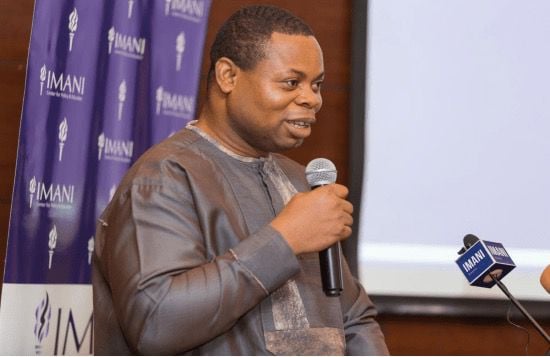Franklin Cudjoe, the Founding President of IMANI Africa, a prominent policy think tank in Ghana, has publicly advised the opposition New Patriotic Party (NPP) to shift its focus from pursuing allegations surrounding suspicious flights and instead concentrate on developing and presenting well-researched, practical alternative policies to counter those of the ruling National Democratic Congress (NDC) government. Cudjoe argues that dwelling on these allegations, while potentially important, distracts from the more pressing issues affecting the daily lives of Ghanaians and undermines the NPP’s ability to present itself as a viable alternative government. This call for a more substantive political engagement comes at a time when the Ghanaian political landscape is increasingly characterized by accusations and counter-accusations, often overshadowing critical policy debates.
The controversy surrounding the alleged suspicious flights erupted after the NPP’s Minority Caucus in Parliament held a press conference raising concerns about two specific aircraft: Air Med Flight N823AM and Cavok Air Antonov 12B. Rev. John Ntim Fordjour, the Member of Parliament for Assin South, spearheaded the allegations, claiming that these flights potentially carried illicit substances and large sums of money. He demanded full transparency and accountability from the Ministry of National Security, urging them to disclose the cargo manifests of both flights. This fueled public speculation and intensified the already charged political atmosphere. The NPP’s focus on these allegations, according to Cudjoe, diverts attention from the bread-and-butter issues that truly resonate with the electorate.
Cudjoe’s intervention highlights a broader concern about the nature of political discourse in Ghana. He implicitly criticizes the tendency of political parties to engage in sensationalism and mudslinging, often at the expense of meaningful policy debates. He suggests that the NPP, by fixating on these unproven allegations, risks appearing more interested in political point-scoring than offering concrete solutions to the challenges facing the nation. This, in turn, could erode public trust and further polarize the political landscape. His call for the NPP to prioritize “cogent and well-researched alternatives” underscores the need for a more mature and substantive political engagement.
The government, through the Minister of Government Communications, Felix Kwakye Ofosu, has vehemently denied the NPP’s allegations, asserting that both flights had legitimate reasons for landing in Ghana. However, the government’s response has not fully quelled the controversy. The lack of detailed information provided by the authorities, coupled with the NPP’s persistent demands for disclosure, has created a climate of suspicion and fueled the ongoing debate. While transparency and accountability are crucial, Cudjoe’s perspective suggests that the NPP should channel its energies into developing alternative policies that directly address the needs of the Ghanaian people, rather than becoming entangled in protracted investigations that may yield little in the way of tangible results.
Cudjoe’s advice to the NPP can be interpreted as a call for a more strategic approach to opposition politics. He suggests that focusing on well-researched policy alternatives would not only better serve the interests of the electorate but also enhance the NPP’s credibility as a viable alternative government. By presenting concrete solutions to pressing national issues, the NPP can demonstrate its competence and readiness to govern, thereby strengthening its position in the political arena. This approach would offer a stark contrast to the current focus on allegations, which, even if proven true, might not resonate as strongly with voters as tangible policy proposals that directly impact their lives.
In conclusion, Franklin Cudjoe’s intervention in the ongoing controversy surrounding the alleged suspicious flights serves as a timely reminder of the importance of substantive policy debates in a healthy democracy. He urges the NPP to prioritize the development and presentation of well-researched alternative policies, arguing that this approach is more likely to resonate with the electorate and position the party as a credible alternative government. By shifting the focus from allegations to solutions, the NPP can contribute to a more constructive and impactful political discourse, ultimately benefiting the citizens of Ghana. While holding the government accountable is a crucial aspect of the opposition’s role, Cudjoe suggests that focusing on concrete policy alternatives offers a more effective path to achieving positive change and gaining public trust.














